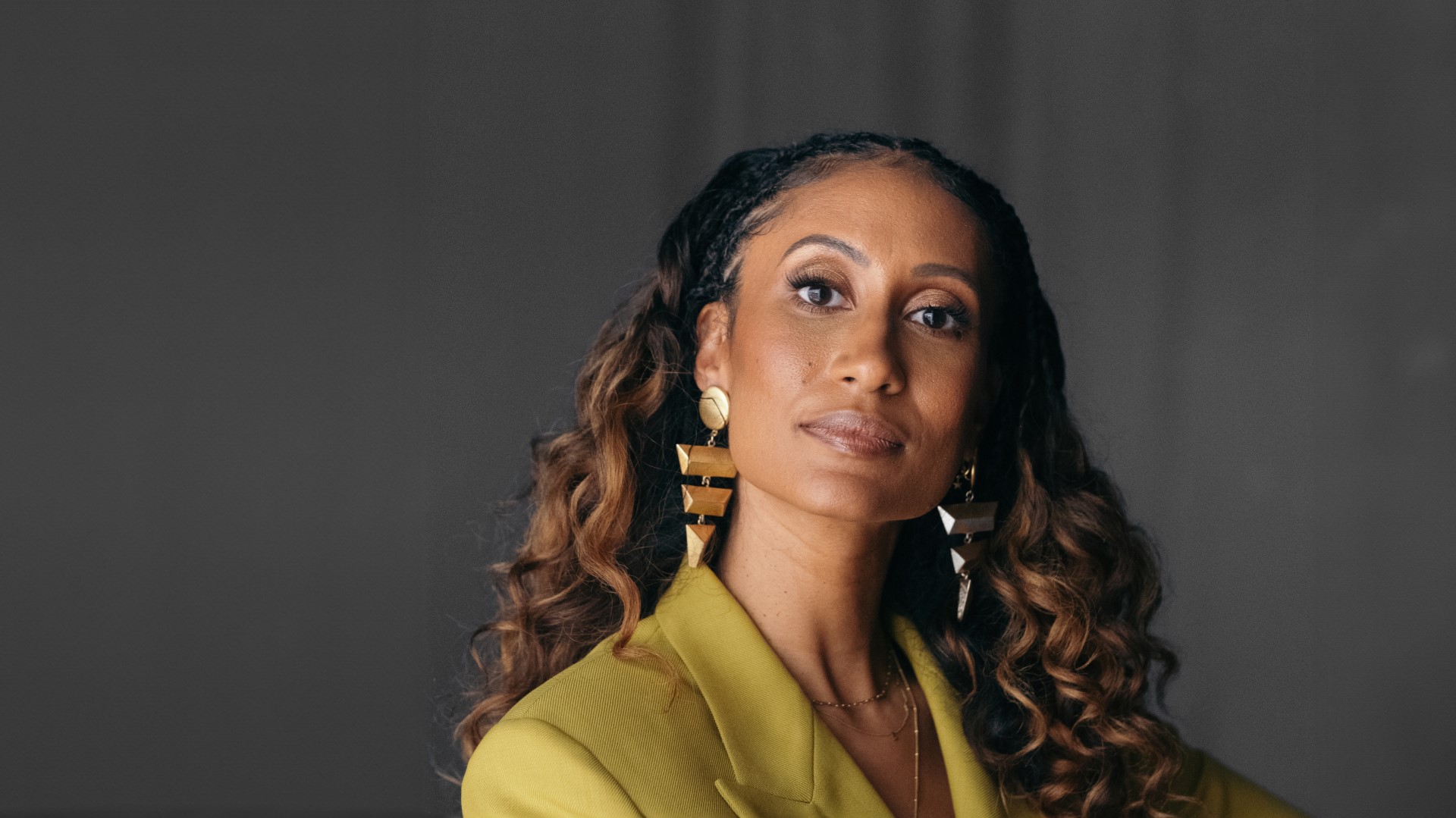
Source: Courtesy of / Advil
Elaine Welteroth knows — now from personal experience — that medical care disparities in pain equity can lead to life-changing, and possibly fatal, outcomes.
The Project Runway judge and mother of one sat down with MadameNoire and discussed the importance of establishing true pain equity while highlighting a partnership with Advil. The brand’s multi-year Pain Equity Project aims to target the racial and ethnic disparities in the diagnosis and treatment of pain.
Welteroth shared that she’d experienced difficulties with medical care practitioners while carrying her son, in addition to life-threatening complications postpartum. The More Than Enough author welcomed her baby boy, Silver Isley, with her husband, Jonathan Singletary, in April 2022.
Welteroth said what she faced medically throughout her pregnancy and childbirth experience changed the way she thinks about and relates to pain. The 36-year-old former Teen Vogue editor-in-chief and fashion tastemaker didn’t necessarily think she’d personally experience “how broken the medical system is.”
“I think I was like many Black women in this country who are aware of the grave stats around the maternal mortality crisis. But I sort of thought that… I think I bought into the myth that if you have a certain educational background, or socioeconomic status, or certain network, that maybe those stats didn’t apply,” Welteroth told MN. “And I realized there were a lot of challenges finding compassionate, quality healthcare, and finding a physician that made me feel safe and understood and supported. [Providers] that made me feel really cared about and listened to.”
The mother of one added that she’d been “badgered for having questions” and felt that her appointments were “rushed.” She described those moments as “scary,” and said, “The last thing I wanted was to become another statistic.”
Welteroth ultimately found a midwife who more compassionately cared for her throughout her pregnancy and gave her possibly life-saving advice postpartum. The fashion-forward star shared that without her midwife’s guidance following the birth of her son, she may have never gotten a deep vein thrombosis [DVT] diagnosis at the hospital as quickly as she did.
“I ultimately had the most beautiful, sacred, safe birth. And then 12 days after, I found out that there were two blood clots in my leg and I had DVT. I remember texting my midwife to say, like, ‘This is what I’m experiencing, is this normal?'” Welteroth recalled.
“She told me to go to the hospital right away. I heeded her advice and I was diagnosed on the spot with DVT, which is a life-threatening condition… So that experience made me even more grateful that I had this option of on-demand, compassionate healthcare. But seeking that out required me to take a route that wasn’t the convenient path,” she noted, regarding her usage of the midwife.
RELATED CONTENT: “To Reduce Black Maternal Mortality Rates, We Need More Black Hospital Staff”
RELATED CONTENT: “‘A Mother’s Intuition:’ Heartbreaking New Film Tackles Racial Disparities In Black Maternal Health On TV One”
Welteroth asserted that medical outcomes heavily rely on the care patients have access to. She highlighted some of the struggles Black people may experience while seeking medical attention, or help with pain management, before she mentioned how conversations about pain and equity are extremely important in fostering hope.
“There’s a lot of stigma around us. It’s already so hard for Black folks to talk about pain – they’re pain. We’re told that we’re strong [and] we’re supposed to hold it all together and carry the weight of the world on our shoulders,” she stated. “And so there’s already a barrier to talk about your pain and to validate your own pain, let alone talk about the discrimination and the bias that you might experience when you go seek treatment for that pain.”
“So I hope that this breaks the silence. I hope that this encourages people to not allow shame to silence them if they are experiencing pain inequity. I hope it empowers them and gives them tools and tips on how to navigate the system for themselves and for their loved ones. And so I think it’s really important to frame this whole conversation through the lens of hope — not to just badger and browbeat our community with more stats and more sad stories that make us feel disempowered and overwhelmed. These conversations should really arm us with support, tools and solutions that we can get behind.”
A Pain Equity Project study commissioned by Advil, in partnership with the Morehouse School of Medicine, outlined the stark numbers surrounding Black patients, pain, and the medical system.
Based on a sample of 2000 Americans, the data found that 3 out of 4 Black patients believe there’s bias in how pain is diagnosed and treated.
Additionally, 1 in 5 Black individuals with pain have felt discriminated against when seeking treatment, and 83% had a negative experience when seeking pain management.
RELATED CONTENT: “Elaine Welteroth Shares The Importance Of Saying ‘No’ To Mom Guilt”









